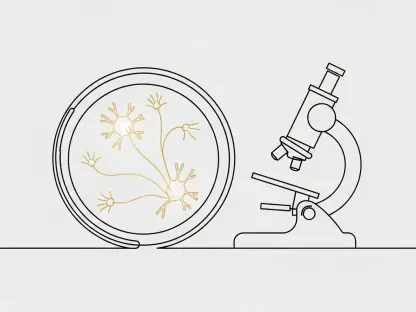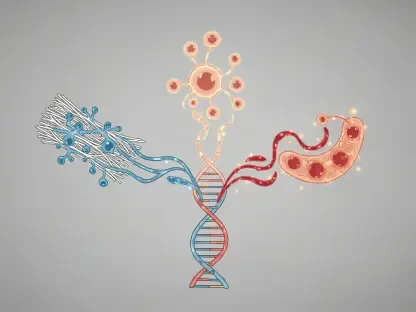Imagine a world where synthetic organisms, known as mirror bacteria, thrive undetected due to their reversed molecular chirality, posing significant risks to human health and the environment. Researchers from diverse scientific fields, including immunology, ecology, and biosecurity, are raising concerns about these organisms’ potential to evade immune systems and disrupt ecosystems. As our understanding of biology advances, so does the need for awareness and proactive measures to address these emerging threats before they materialize.
Novel Molecular Structures and Immune System Evasion
The Unique Chirality of Mirror Bacteria
One of the most intriguing yet concerning aspects of mirror bacteria is their unique molecular chirality, a structural property that sets them apart from natural life forms. Chirality, often referred to as “handedness,” can result in mirror images of molecules that are otherwise identical. In the case of mirror bacteria, this reversed chirality means that their molecular structures are mirror images of those found in naturally occurring organisms. This novel chirality could significantly impair the immune system’s ability to recognize and neutralize these synthetic organisms, potentially leaving humans, animals, and plants vulnerable to new and unforeseen infections.
The immune system relies heavily on its ability to identify and attack foreign pathogens based on specific molecular patterns. Mirror bacteria, with their reversed chirality, may possess molecular structures that are unrecognizable to the immune system’s usual detection mechanisms. This would enable them to evade immune responses and proliferate within their hosts unchecked. The implications of such immune evasion are profound, as it could lead to the emergence of entirely new diseases that current medical defenses are ill-equipped to handle. Addressing this challenge requires an in-depth understanding of molecular interactions and the development of novel immunological strategies.
Potential Impact on Human, Animal, and Plant Health
The potential health implications of mirror bacteria extend beyond their ability to evade the immune system. As these synthetic organisms spread unchecked, they could introduce novel infections that impact humans, animals, and plants in unforeseen ways. For humans, this could mean the emergence of new pathogens that our bodies are completely defenseless against, leading to widespread health crises and challenging existing medical infrastructures. Similarly, animals and plants could face new, virulent infections that threaten biodiversity and ecological balance.
The introduction of mirror bacteria into natural ecosystems could disrupt the delicate balance of predator-prey relationships. Natural predators may find it difficult or impossible to recognize and consume these synthetic organisms due to their unfamiliar molecular structures. Without natural checks and balances, the unchecked growth and distribution of mirror bacteria could lead to ecological upheaval, affecting food chains and ecosystems on a global scale. The potential impact on agriculture is particularly concerning, as crop infections could jeopardize food security and lead to substantial economic losses.
Calls for Global Discussion and Proactive Measures
The Consensus Among Experts
Despite the fact that the development of mirror bacteria is at least a decade away, experts from various fields are urging immediate attention and proactive measures to mitigate potential risks. In a consensus among 38 experts from nine countries, the need for a global discussion involving scientists, policymakers, and other stakeholders has been emphasized. The goal is to thoroughly understand the potential dangers posed by mirror bacteria and to develop strategies to mitigate these threats effectively. The urgency of this discussion cannot be overstated, as the rapid pace of scientific advancements means that these risks could materialize sooner than anticipated.
The study conducted by these experts highlights the importance of caution and additional research. Understanding the full extent of mirror bacteria’s potential impact requires a comprehensive approach that encompasses immunology, ecology, and biosecurity. Collaborative efforts among scientists from different disciplines are essential to address the multifaceted nature of the risks involved. By pooling knowledge and resources, the scientific community can develop preemptive measures that protect global health and ecological safety.
Planned Events and the Importance of Preemptive Measures
Imagine a world where synthetic organisms, called mirror bacteria, exist undetected because of their reversed molecular chirality. These organisms pose considerable risks to both human health and the environment. Scientists from various fields, such as immunology, ecology, and biosecurity, are increasingly worried about the potential of these bacteria to bypass the immune system and disrupt ecosystems. Mirror bacteria challenge traditional biological understanding and have the potential to cause unanticipated problems. As biological knowledge evolves, so too must our vigilance and strategies to address these new threats. The urgency to understand and mitigate the dangers posed by mirror bacteria grows as we face the reality of their potential impacts. Collaborative efforts in research and policy-making are essential to prevent these synthetic organisms from causing widespread harm. As we advance in science and technology, it becomes crucial to remain ahead of these threats and develop proactive measures to protect both public health and the environment.









